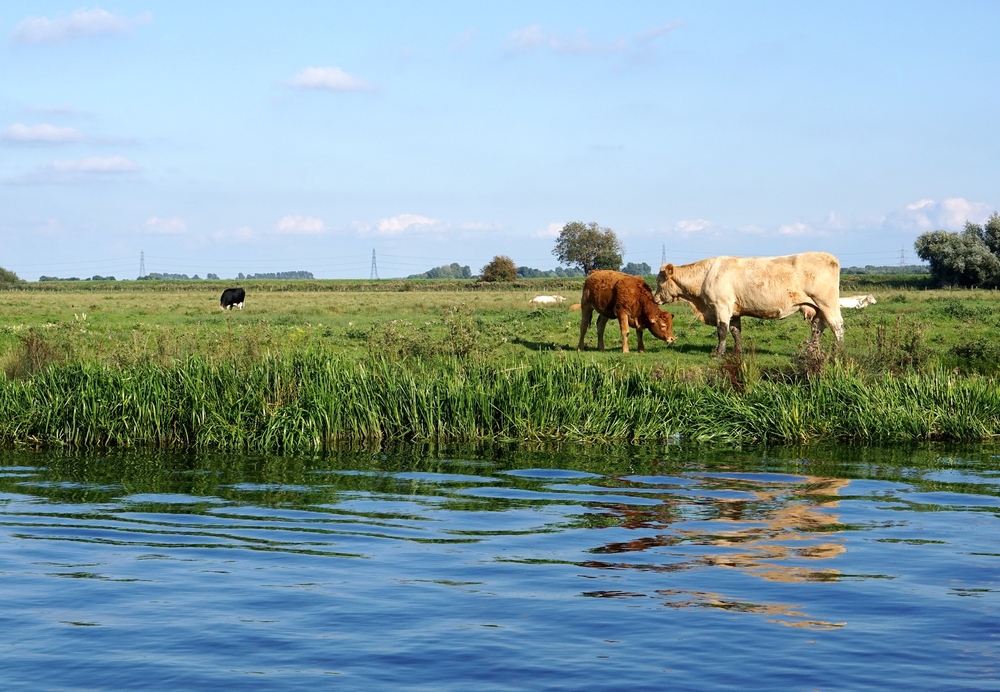Cows should eat only grass, not corn and factory-made feed products. They are ruminants and their chambered stomachs are designed to digest grass, not other plants. Unfortunately, in many countries good quality grass is not easy to find and corn is cheap. However, if possible, you should look for beef from free-range cows, due to these reasons.
- Lower fat content: Grass-fed cows have lower fat in their tissue. Corn-fed beef tend to have more calories and saturated fat. Green plants also encourage the formation of Omega 3 fatty acid. This substance is essential for the growth of brain cells. Grass fed cows have Omega 6 to Omega 3 ratio of 3:1, while corn fed cows are only 20:1. In fact, the amount of Omega 3 of grass-fed beef can nearly similar to fish. If we eat too much corn fed beef, it’s possible that we suffer from fat imbalance.
- Better nutritional content: Grass fed beef may have up to 4 times more vitamin A and E than regular corn fed beef. If you want to get the most out of your meal, you should choose grass fed beef instead.
- Better animal treatment: It is true that farm animals will eventually get killed to satisfy our appetite, but it doesn’t mean that we can treat them cruelly. Grass fed cows typically get better treatment than industrially-raised cattle. Cramming thousands of cows into a cramped shed is a horrible situation. They defecate on themselves and get injected by various hormones, antibiotics and chemicals to accelerate growth. Industrial cattle go so fast that they are slaughtered in just 18 months, while grass-fed cows may take up to 4 or 5 before reaching slaughter weight.
- No chemicals: Industrially-raised cattle are injected with hormones and antibiotics to accelerate growth and prevent diseases. While grass fed cows are typically raised using organic method. Because they consume fresh grass right from the ground, their organs can function properly and the grow at proper rate. Grass fed cattle exercise each day and breathe fresh air, resulting in meat with good texture. Even when they defecate, they give back to the nature by ensuring the soil stay fertile for grass to grow. Grass fed cattle is also more resistant to disease, so they don’t need any antibiotic to prevent diseases.
- Lower risk of E. Coli: Many people became gravely ill due to accidental ingestion of E. coli bacteria. Nearly half industrially raised cattle are known to have new strain of E. coli, which is resistant to existing antibiotic. Corn-fed cows typically have more acidic digestion system, so if a strain of E. coli can survive there, it may also survive in our digestion system. As a solution, corn fed cow could be given grass for five days before slaughter to kill of dangerous E. coli strain, by reducing the acidity. It’s a simple thing to do, but not many industrial farms do that. So, it’s a better bet to choose purely grass fed cows.





